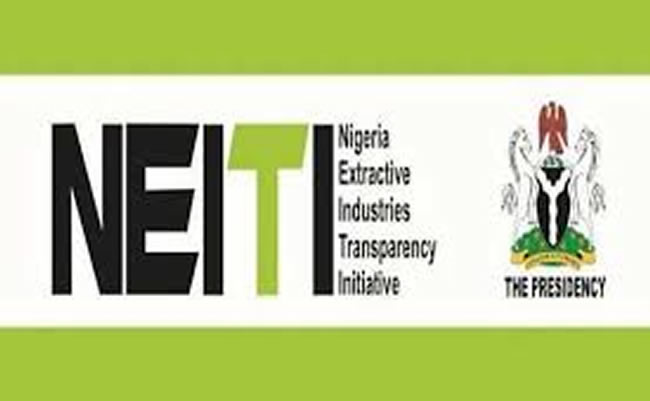Nigeria’s mining sector has contributed a record N1.1 trillion to the federation account, marking a significant milestone for the industry. This achievement reflects the sector’s growing role in the nation’s revenue stream and underscores its potential to contribute meaningfully to Nigeria’s economic diversification efforts. The figures, disclosed in a recent report, show the results of policy reforms aimed at revitalizing mining operations, enhancing transparency, and ensuring that the sector fulfills its revenue-generating potential.
A Boost from Policy Reforms
The substantial remittance to the federation account follows various government initiatives intended to reform the mining sector. Policies introduced by the Ministry of Mines and Steel Development have targeted illegal mining, encouraged formalization, and provided incentives for investments in mineral exploration and processing. Additionally, increased monitoring and regulation have enhanced compliance, ensuring that mining firms remit taxes and royalties as mandated.

Key reforms include establishing a more transparent licensing system, which has encouraged both local and foreign investment, and implementing measures to track and regulate mining activities. The impact of these initiatives is evident in the significant jump in revenue, a testament to the potential of the mining sector when proper governance and accountability are prioritized.
**Nigeria’s Rich Mineral Landscape**
Nigeria is endowed with an array of mineral resources, including gold, limestone, lead, zinc, and coal. However, the sector has traditionally been underdeveloped compared to the country’s oil and gas industry. As the country works to reduce its dependence on oil revenues, the government has increasingly turned to mining to diversify income streams. The latest report indicates that increased exploration and extraction of minerals have contributed to this revenue surge, with gold and limestone production playing key roles.
Beyond revenue, the government has also focused on the job creation potential of the mining sector. By fostering an environment conducive to investment, more mining companies have set up operations in Nigeria, employing thousands of Nigerians across various skill levels. This job creation has had a positive ripple effect, spurring economic activity in regions rich in mineral deposits.
**Challenges and Opportunities in the Sector**
Despite its recent gains, Nigeria’s mining sector faces several challenges, including illegal mining, inadequate infrastructure, and environmental concerns. Illegal mining, in particular, remains a significant hurdle, depriving the nation of potential revenue and often causing environmental degradation. The government has responded by deploying a mining police task force to curtail illegal activities and ensure that only licensed operators extract minerals.
Infrastructure is another critical issue. Many mineral-rich areas are located in regions with limited access to essential facilities such as roads, power, and water supply, which makes it difficult for mining operations to reach full capacity. Addressing these infrastructure gaps could further increase the sector’s contributions, as companies would be able to operate more efficiently and sustainably.
Environmental sustainability is also a key consideration. Mining, by nature, can have adverse environmental effects, including deforestation, soil erosion, and pollution of water sources. The Nigerian government has therefore included strict environmental compliance measures in its licensing process, requiring mining companies to conduct environmental impact assessments and adhere to sustainable practices.
**Government’s Vision for Mining**
The N1.1 trillion remittance aligns with the federal government’s vision of creating a mining sector that significantly contributes to the national economy. Through the Roadmap for the Growth and Development of the Nigerian Mining Industry, launched in 2016, Nigeria has taken a structured approach to develop the sector. This roadmap emphasizes improved governance, sustainability, and the creation of a value chain that allows minerals to be processed within the country rather than exported in raw form.
By focusing on processing, Nigeria aims to increase the value derived from its mineral resources, leading to greater revenue generation and creating opportunities for industrial growth. Furthermore, the roadmap includes incentives for both local and foreign investors, encouraging them to explore and process minerals within Nigeria.
**Global Interest and Foreign Investments**
The Nigerian mining sector has also attracted the attention of international stakeholders, who see the country’s mineral wealth as an untapped opportunity. Foreign investments have surged, with companies from countries like Canada, Australia, and China establishing a presence in Nigeria. These investments bring capital, technology, and expertise, which are crucial for advancing the sector and meeting global standards of operation and productivity.
The government has also prioritized collaboration with international partners to enhance capacity building, strengthen regulatory frameworks, and adopt technological innovations. Such collaborations are expected to further boost productivity in the sector and make Nigerian mining products more competitive on the global stage.
**Looking Forward: Sustaining Growth in Mining**
The N1.1 trillion contribution is an encouraging sign of the mining sector’s potential, but sustaining this level of growth will require continuous government support and strategic planning. Analysts have highlighted the importance of ongoing investment in infrastructure, enhanced regulatory oversight, and capacity-building initiatives to maximize the sector’s potential.
The government is expected to continue efforts to create a favorable business environment, encourage local and foreign investment, and address challenges within the sector. By reinforcing its commitment to these objectives, Nigeria can fully realize the mining sector’s role in economic diversification, job creation, and revenue generation.
**Conclusion**
Nigeria’s mining sector’s remittance of N1.1 trillion is a landmark achievement that signals the sector’s transformative potential. The government’s commitment to reform and investment has begun to yield significant returns, providing a much-needed boost to national revenue. Moving forward, addressing the sector’s challenges and sustaining momentum through strategic planning and collaboration will be crucial in harnessing the full potential of Nigeria’s mineral wealth. The mining sector stands poised to become a major pillar of Nigeria’s economy, contributing to a diversified and resilient future.
Support InfoStride News' Credible Journalism: Only credible journalism can guarantee a fair, accountable and transparent society, including democracy and government. It involves a lot of efforts and money. We need your support. Click here to Donate
